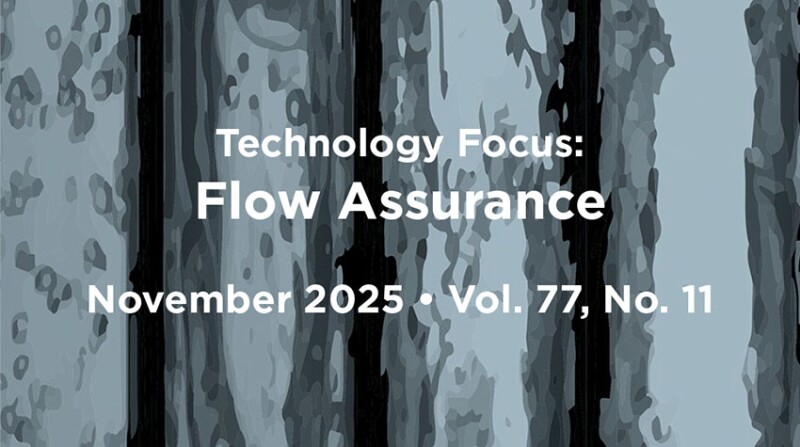Recent technical developments in flow assurance can be summarized as preventive, artificial-intelligence- (AI) assisted, and ecofriendly management (i.e., low-carbon operations).
Current research trends emphasize the integrated analysis of experimental data and advanced modeling, AI-driven real-time surveillance systems, and flow assurance in CO2 transport pipelines, with growing interest in engineering analytics of carbon capture, use, and storage.
Several field applications exemplify how preventive, ecofriendly, and AI-assisted innovations are advancing practices. Paper SPE 220746 demonstrates that integrated hydraulic modeling and operational analytics could predict paraffin deposition and optimize pigging operations, reducing wax-related production losses. Paper SPE 222678 shows that the field implementation of the New Approach of Design Against Hydrates (NADAH) paradigm allowed controlled excursions into hydrate regions, reducing costs and emissions. Finally, paper SPE 222206 presents a hybrid AI/physics workflow that enabled real-time hydrate detection and response.
Flow assurance in petroleum engineering depends on a reliable analysis of inflow and outflow. The complexity of multiphase flow requires extensive experiments and field verification, resulting in the acquisition of large amounts of data. Beyond data-driven predictive models, physics-informed models, combining scale-dependent data and physical/chemical theory, are seen as a major attempt in multiphase pipe flow. The potential of large language models and reinforcement learning remains challenging because they rely on scarce high-quality field data and strict alignment with multiphase flow physics.
The advancement of flow-assurance technology can be characterized as a transition from reactive to proactive, from laboratory-scale examination to field applicability, and from data-driven to big data and physics integration.
Summarized Papers in This November 2025 Issue
SPE 220746 Machine-Learning Workflows Detect, Predict Paraffin Production in Eagle Ford by Jesus D. Contreras, SPE, Javier R. Vasquez, and Trey W. Harton, ConocoPhillips, et al.
SPE 222678 Design Approach Based on Induction Properties Mitigates Hydrate Formation by Christophe Candelier, Nicolas Lesage, SPE, and Thierry Saint-Pierre, TotalEnergies.
SPE 222206 AI Powers Hydrate Detection, Prevention in North Kuwait Jurassic Gas Field by Abrar Hajjeyah, SPE, Alaa Al-Saleh, and Shaikha Al-Qahtani, SPE, Kuwait Oil Company, et al.
Recommended Additional Reading
IPTC 24987 A Second-Look Assessment on a Debris Formation on Subsea Saturated Pipelines With Sulfate-Reducing Bacteria Contaminated: A Novel Approach to Flow-Assurance Modeling by M.O. Pamula, Pertamina Hulu Energy, et al.
SPE 220935 Resolving a Flow-Assurance Issue at Offshore Field: A Successful Novel Technology Deployment by L. Hendraningrat, Petronas, et al.
SPE 222401 Intelligent Drillstem Test for Well-Scale Flow-Assurance Monitoring and Elemental Sulfur Deposition Prevention Enables Field Development in an Offshore Deep Gas Reservoir by Ahmed Al Blooshi, ADNOC, et al.

Changhyup Park, SPE, is a professor in the Department of Energy and Resources Engineering at Kangwon National University, South Korea, where he also holds joint appointments in the Department of Integrative Engineering for Hydrogen Safety and the Convergence Program for Carbon Neutral Industry, reflecting his broad expertise across emerging energy sectors. He holds BS, MS, and PhD degrees from Seoul National University in South Korea. Park has held visiting scholar positions at Stanford University and The University of Texas at Austin. He has published more than 70 peer-reviewed journal papers and has served as an active volunteer with SPE. Park received the 2020 Regional Distinguished Achievement Award for Petroleum Engineering Faculty for the Northern Asia Pacific Region.

